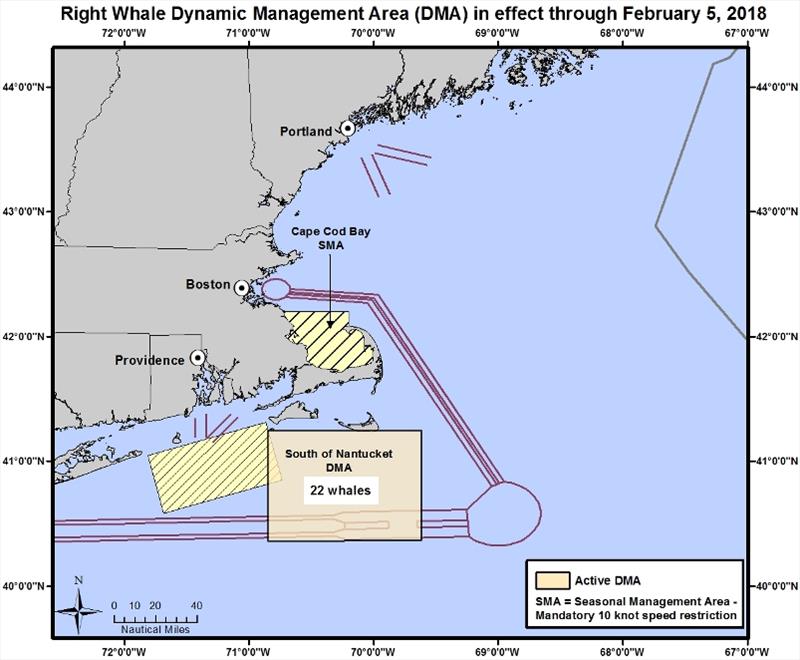
New voluntary right whale speed restriction zone south of Nantucket
by NOAA Fisheries 30 Jan 2018 06:19 PST

New voluntary right whale speed restriction zone south of Nantucket © NOAA Fisheries
NOAA Fisheries announces that a voluntary vessel speed restriction zone (Dynamic Management Area or DMA) has been established 30 nautical miles south of Nantucket, MA to protect an aggregation of 22 right whales sighted in this area on January 23, 2018. This DMA is in effect immediately.
Mariners are requested to route around this area or transit through it at 10 knots or less.
South of Nantucket, MA DMA January 23-February 5
41 15 N
40 22 N
070 51 W
069 37 W
Active Seasonal Management Areas (SMAs)
Mandatory speed restrictions of 10 knots or less are in effect in the following areas:
Cape Cod Bay -- in effect through May 15, 2018
Block Island -- in effect through April 30, 2018
New York, Philadelphia and Norfolk -- through April 30, 2018